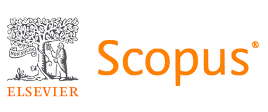Analyzing Perceived Risk and E-WOM Influence on Healthy Food Choices Among Generation Z in Malang City, Indonesia
Abstract
The pandemic has shifted societal behavior towards a healthier lifestyle, with 7 out of 10 people in Indonesia desiring healthy food. Malang City, as one of the cities in East Java with many universities, has a significant Gen-Z population influencing the economic activities in the healthy food sector. This study explores the relationship between Perceived Risk and Purchase Decisions and the moderating role of Electronic Word of Mouth (E-WOM) among students in Malang City. Using quantitative methods and SEM-PLS analysis with 100 101 students from Universitas Brawijaya as respondents gathered through questionnaires, this study found that Perceived Risk significantly affects healthy food purchase decisions, and E-WOM is a significant moderating variable in this relationship. The study provides strategic recommendations for marketing and policies related to healthy food, including financial risk control through regular product price evaluations, the creation of social trends to reduce negative stigma among Gen-Z, improved production and delivery efficiency to speed up product reception, and maximizing the role of E-WOM through promoting positive reviews and educational content on social media to build a positive image and increase consumer loyalty.
Keywords
Full Text:
PDFReferences
Badan Pusat Statistik. (2020). Sensus Penduduk Masyarakat Indonesia tahun 2020. Https://Www.Bps.Go.Id/.
Ghazali, E., Mutum, D. S., & M Mahbob, N. A. (2022). The role of perceived risk in the luxury consumption behavior of millennials: A case of luxury fashion brands. Journal of Retailing and Consumer Services,.
Ghozali, I., & Hengky, L. (2017). Partial Least Square: Konsep, Teknik, dan Aplikasi SmartPLS 5.0. Badan Penerbit Universitas Diponegoro.
Hair, J. F., Hult, G. T., Ringle, C. M., & Sarstedt, M. (2022). A Primer on Partial Least Squares Structural Equation Modelling (PLS-SEM) (3rd ed.). Sage Publication.
Indiani, N. L. P., Rahyuda, I. K., Yasa, N. N. K., & Sukaatmadja, I. P. G. (2015). Perceived Risk and Trust as Major Determinants of Actual Purchase, Transcending The Influence of Intention. ASEAN Marketing, 7(1), 1–13.
Jeuring, J. H. G., & Haartsen, T. (2017). Destination Branding by Residents: The Role of Perceived Responsibility in Positive and Negative Word-of-Mouth. Tourism Planning & Development, 14(2), 240–259. https://doi.org/10.1080/21568316.2016.1214171
Mansur, A., & Ridwan, R. (2022). Karakteristik Siswa Generasi Z dan Kebutuhan Akan Pengembangan Bidang Bimbingan dan Konseling. Educatio, 17(1), 120–130. https://doi.org/10.29408/edc.v17i1.5922
Mendini, M., Batat, W., & Peter, P. C. (2021). Designing Luxurious Food Experiences for Millennials and Post-Millennials (pp. 261–273). https://doi.org/10.4018/978-1-7998-5882-9.ch014
Novianti, S. (2018). Meningkatkan Pengetahuan Makanan Sehat Pada Anak Melalui Kegiatan Cooking Di Tk Tunas Bangsa Balai Panjang Kecamatan Lareh Sago Halaban Kabupaten Lima Puluh Kota. Institut Agama Islam Negeri.
Purba, F. R., & Paramita, E. L. (2021). The Influence of eWOM and Customer Satisfaction on Purchasing Decisions. International Journal of Social Science and Business, 5(4), 578. https://doi.org/10.23887/ijssb.v5i4.40447
Rahadi, D. (2023). Pengantar Partial Least Squares Structural Equation Model (PLS-SEM) (Wijonarko, Ed.; 1st ed.). CV. Lentera Ilmu Madani.
Rastati, R. (2018). Media Literasi Bagi Digital Natives: Perspektif Generasi Z Di Jakarta. Jurnal Kwangsan, 6(1), 60. https://doi.org/10.31800/jtp.kw.v6n1.p60--73
Salsabila, H. Z., Susanto, & Hutami, L. T. H. (2021). Pengaruh Persepsi Risiko, Manfaat Dan Kemudahan Penggunaan Terhadap Keputusan Pembelian Online Pada Aplikasi Shopee. Jurnal Ilmiah Manajemen, 9(1), 87–96.
Suwarno, D., Tika, E., & Rahutami, A. (2018). PerZpective. Universitas Katolik Soegijapranata.
Talwar, M., Talwar, S., Kaur, P., Islam, A. K. M. N., & Dhir, A. (2021). Positive and negative word of mouth (WOM) are not necessarily opposites: A reappraisal using the dual factor theory. Journal of Retailing and Consumer Services, 63, 102396. https://doi.org/10.1016/j.jretconser.2020.102396
Wahab, A., Aqif, T., & Bint-e-shehzad, Z. (2023). Studying the impact of e-marketing by universities on students’ loyalty with the mediation of intention to get enrollment and moderation of eWOM. Journal of Applied Research in Higher Education. https://doi.org/10.1108/JARHE-08-2022-0264
Yunita, M. N. (2023). Tren Makanan Sehat dan Kebutuhan Informasi Gizi di Kemasan.
Zulkarnain, M. (2021). Effect Of E-WOM And Perceived Value On Purchase Decisions. Ihtiyath : Jurnal Manajemen Keuangan Syariah. https://doi.org/10.32505/ihtiyath.v5i2.3422
Refbacks
- There are currently no refbacks.

























